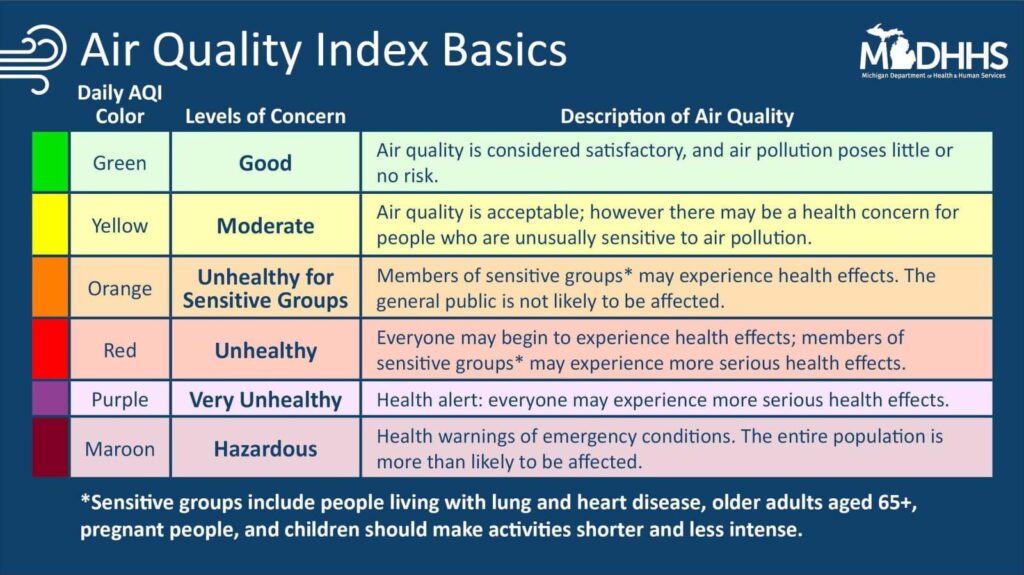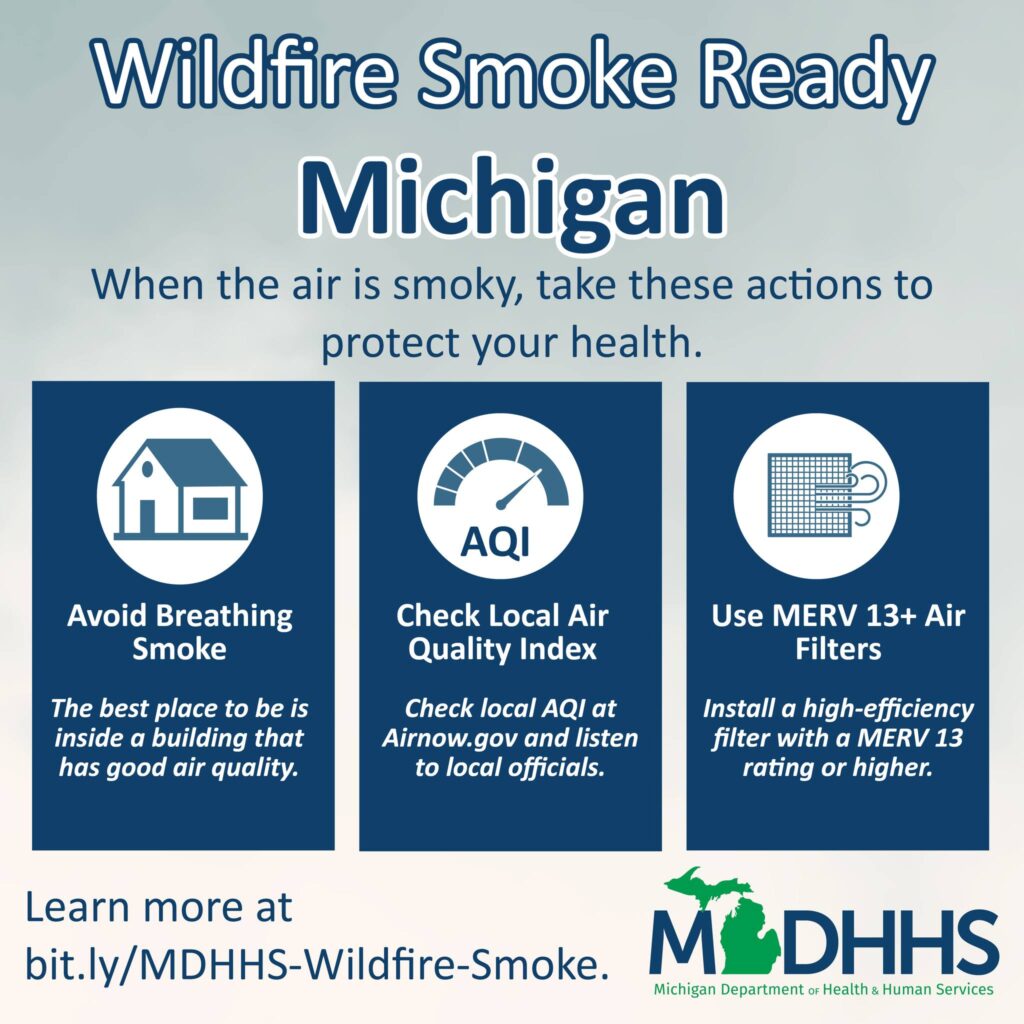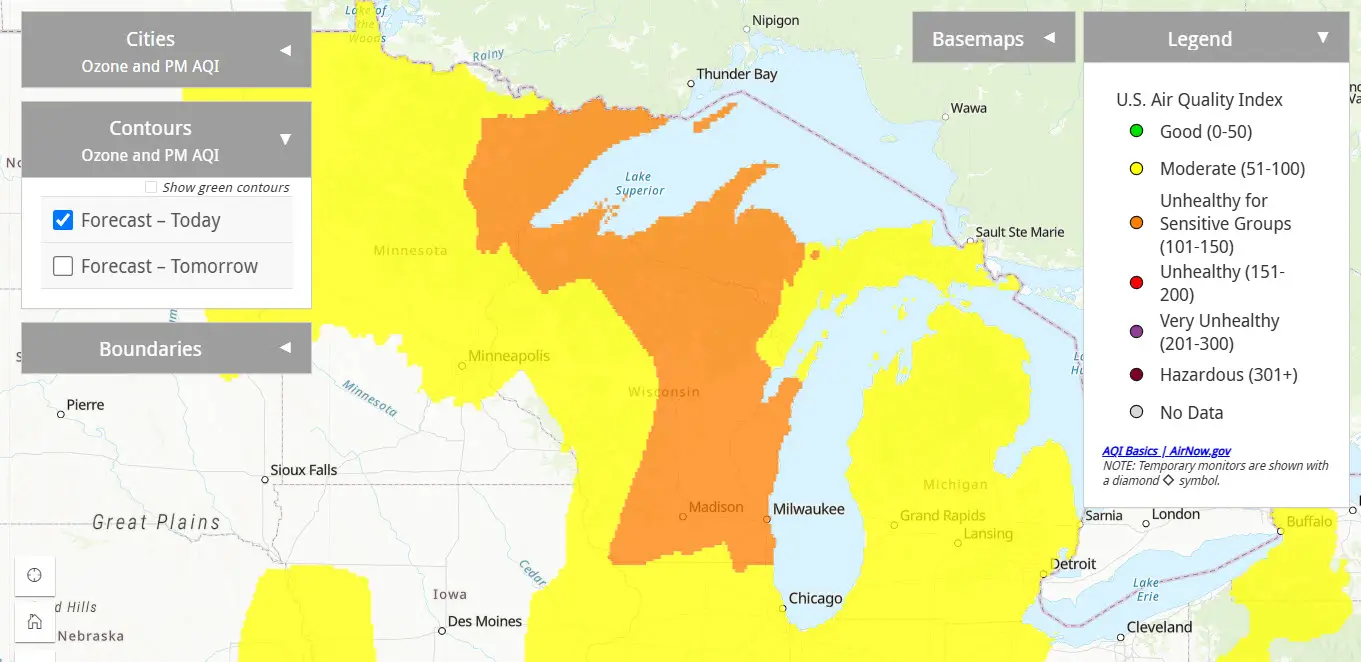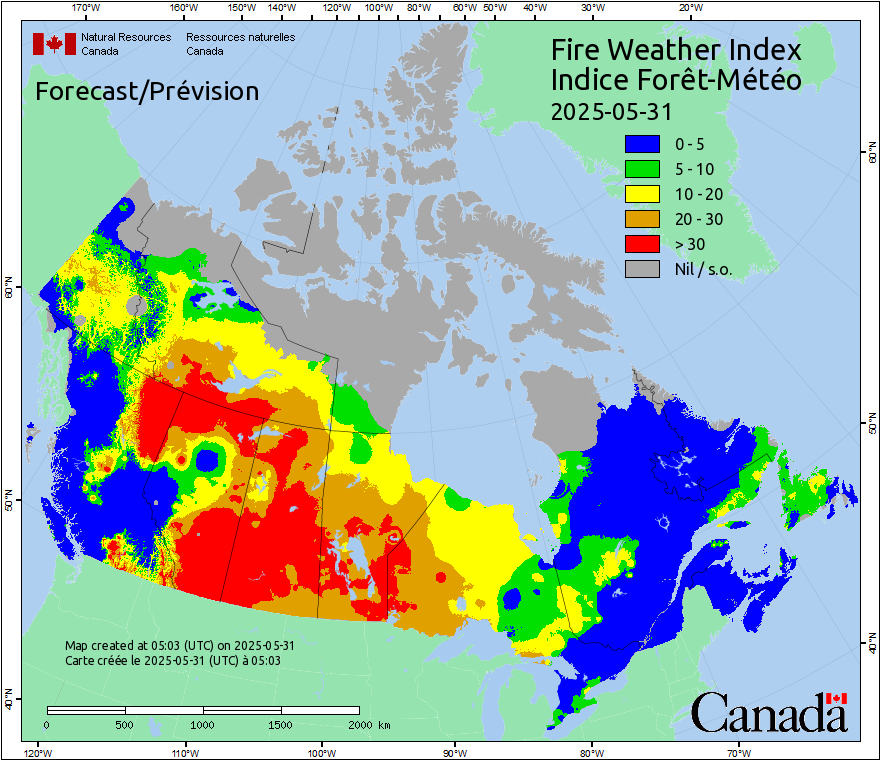A Michigan air quality alert was issued due to incoming wildfire smoke, prompting a statewide advisory and health warnings for vulnerable populations. Fine particulate levels are expected to reduce on Saturday across the state; sensitive groups are urged to continue to limit outdoor activity
Air Quality Expected to Improve Saturday From Unhealthy Levels Across Michigan

The Michigan Department of Environment, Great Lakes, and Energy (EGLE) has issued a statewide air quality advisory effective from Friday, May 30 through 6 a.m. Saturday, May 31. The advisory stems from Canadian wildfire smoke drifting southward with a cold front moving in from Ontario.
Fine particulate matter (PM2.5) concentrations are expected to reach Orange AQI levels (Unhealthy for Sensitive Groups) in many parts of the state. Brief spikes into Red AQI (Unhealthy for the general population) are also possible as the smoke spreads from northern to southern Michigan throughout the day.
EGLE meteorologists predict conditions will improve on Saturday morning as winds shift and push the smoke out of the region.
Early Season Wildfires in Canada Impact the United States
As of May 31, 2025, several major wildfires in Canada are significantly impacting air quality across the United States. The most severe fires are concentrated in Manitoba and Saskatchewan, where states of emergency have been declared due to widespread evacuations and uncontrolled fire activity.
Major Canadian Wildfires Affecting U.S. Air Quality
- Manitoba: Approximately 200,000 hectares have burned, including the Bird River and Border fires. These fires have led to the evacuation of over 17,000 residents, with entire communities, such as Flin Flon, being evacuated. The smoke from these fires is drifting southward, affecting air quality in the U.S.
- Saskatchewan: The province is battling multiple large fires, with over a dozen considered out of control. States of emergency have been declared, and thousands of residents have been evacuated. Smoke from these fires is contributing to air quality issues in neighboring U.S. states.
U.S. Regions Experiencing Air Quality Impacts
Smoke from these Canadian wildfires is affecting air quality across several U.S. states:
- Midwest and Great Lakes: States like Minnesota, Wisconsin, and Michigan are experiencing unhealthy air quality levels, particularly for sensitive groups. Air quality alerts have been issued, and residents are advised to limit outdoor activities.
- Central U.S.: Smoke is expected to reach areas including Illinois, Indiana, and Ohio, potentially impacting air quality and visibility.
- Northeast and Mid-Atlantic: Lighter concentrations of smoke may extend into the Mid-Atlantic and Northeast regions, though significant air quality impacts are less certain.
Understanding the Health Risks from PM2.5 Wildfire Smoke Exposure

PM2.5, or fine particulate matter, can penetrate deep into the lungs and aggravate conditions like asthma, heart disease, and other respiratory illnesses. Health officials warn that symptoms may include wheezing, coughing, chest tightness, burning eyes, or throat irritation.
According to the Michigan Department of Health and Human Services (MDHHS), sensitive groups such as older adults, people with lung or heart disease, pregnant individuals, and children should limit time outdoors and avoid physical exertion during high pollution periods.
An Orange AQI indicates potential health risks for these groups. At Red AQI, everyone may begin to experience health effects, with increased risks for vulnerable populations.
How to Protect Yourself Indoors During the Michigan Air Quality Alert
To minimize exposure during the advisory:
- Stay indoors, especially during peak smoke periods.
- Keep windows closed overnight to avoid trapping smoke indoors.
- Run central air conditioning with filters rated MERV 13 or higher to improve indoor air quality.
- Avoid using wood-burning stoves, fireplaces, and vacuum cleaners that can stir up particles.
Public Urged to Help Reduce Local Pollution Sources
In addition to protecting personal health, Michigan residents are encouraged to reduce local pollution by:
- Avoiding outdoor burning
- Limiting the use of wood-burning devices
These steps help prevent additional particulate matter from entering the air during already sensitive conditions.
Stay Updated with Reliable Forecast and Health Resources
The public is encouraged to track real-time air quality and receive forecast updates through the following official channels:
- Michigan.gov/MiAir – Forecasts and updates from EGLE meteorologists
- AirNow.gov – National AQI and air monitoring
- bit.ly/MDHHS-Wildfire-Smoke – MDHHS health guidance for wildfire smoke
- EnviroFlash Alerts – Free air quality alert notifications
Find More Interesting Feature Stories From ThumbWind
- Michigan Feature Stories – Unveiling the diverse and vibrant people, captivating places, and remarkable events that come together to make the Great Lake State unique and cherished by both residents and visitors alike.
- Weird Political News – A sarcastic take on official news from around the U.S., exploring the absurdities that often arise in the political landscape while providing a humorous perspective on current events and highlighting the quirks of politicians and policies.
- Michigan News – News and events from Michigan’s Upper Thumb region worth knowing, including local stories, impactful interviews, and updates on community happenings that shape the culture and lifestyle of the area.
Your Turn – Like This, or Loath it – We Want To Hear From You
Please offer an insightful and thoughtful comment. We review each response. Follow us to have other feature stories fill up your email box, or check us out at ThumbWind News.




